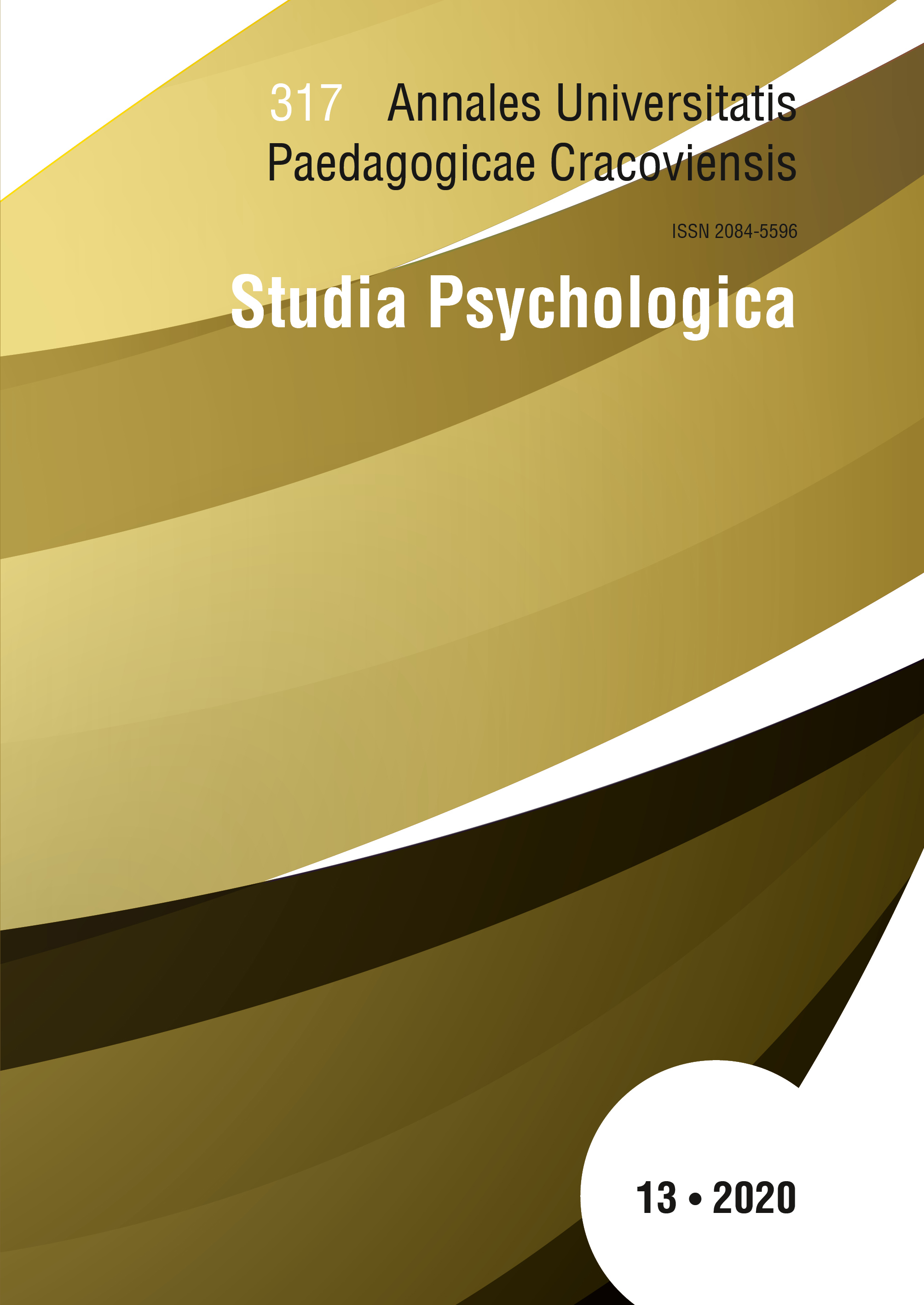Możliwości wykorzystania wskaźników adaptacyjnych narracji autobiograficznych w pracy z osobami z diagnozą schizofrenii paranoidalnej
DOI:
https://doi.org/10.24917/20845596.13.10Słowa kluczowe:
narracje autobiograficzne, zdrowie psychiczne w ujęciu narracyjnym, schizofreniaAbstrakt
Niniejszy artykuł prezentuje wyniki badań z zakresu psychologii klinicznej zrealizowane z wykorzystaniem perspektywy oraz metodologii narracyjnej. Zdrowie psychiczne w ujęciu narracyjnym definiowane jest jako zdolność do tworzenia życiowej opowieści spełniającej określone kryteria formalne (Stemplewska-Żakowicz, Zalewski, 2010). Głównym celem badań było scharakteryzowanie - z perspektywy psychologii narracyjnej - autonarracji tworzonych przez osoby z diagnozą schizofrenii paranoidalnej oraz uchwycenie tzw. zdrowych/ adaptacyjnych wskaźników narracji autobiograficznych (beneficial life stories indicators). W badaniu wzięło udział 9 pacjentów z rozpoznaniem schizofrenii paranoidalnej w fazie remisji.
Narracje autobiograficzne osób badanych pozyskane zostały w odpowiedzi na bodziec narracyjny: „Proszę o opowiedzenie mi historii swojego życia”, rozpoczynający wywiad
na temat historii życia (The Life Story Interview) autorstwa Dana P. McAdamsa (1985, 2006). Rekonstrukcja strategii tworzenia opowieści o własnym życiu przez osoby badane pozwoliła określić stopień przystawalności narracji autobiograficznych osób chorych na schizofrenię do kryteriów sprzyjających zdrowiu narracji. Wyniki badań ujawniły także wewnętrzne zróżnicowanie historii życia pacjentów w obrębie całej grupy.
Przytoczone w artykule kryteria oraz ich konceptualizacja w odniesieniu do opowieści o życiu konstruowanych przez pacjentów psychiatrycznych może stanowić podstawę teoretyczną dla różnicowania autonarracji charakterystycznych dla prawidłowego funkcjonowania jednostki. Wskaźniki te pełnią również potencjalnie rolę wskazówek dla klinicystów, psychiatrów oraz psychoterapeutów pracujących z pacjentami psychotycznymi. Ponadto identyfikacja zakłóceń bądź deficytów występujących na poziomie narracji autobiograficznych umożliwia wgląd w fenomenologię choroby z punktu widzenia osoby jej doświadczającej, co zaś wzbogaca psychologiczne strategie wyjaśniania zjawisk psychicznych zachodzących w osobach badanych o kategorię ich rozumienia.

